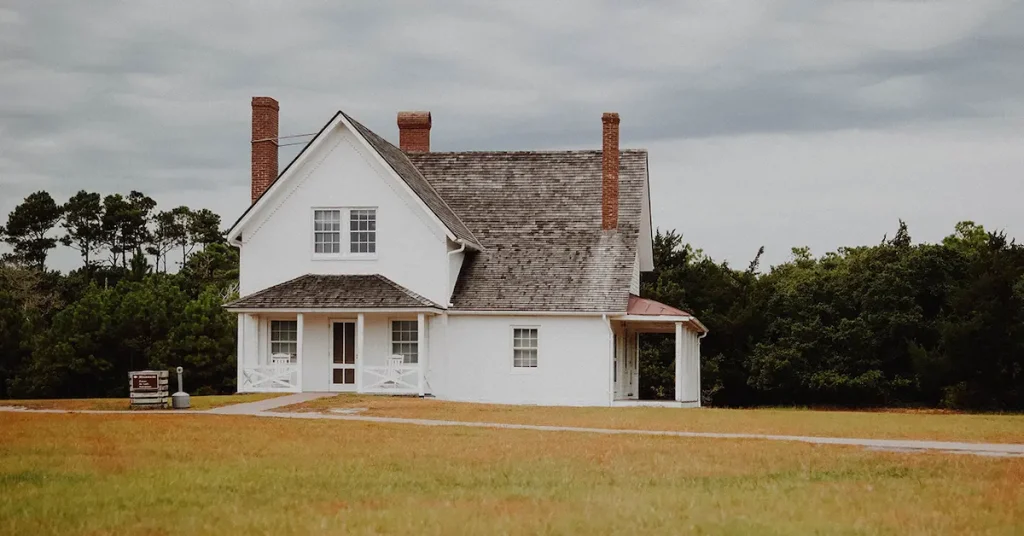When it comes to making a decision surrounding where you will spend your retirement, the options are seemingly endless. Whether you enjoy the coast or have imagined relaxing in the mountains with only the concern of which hike to conquer that day, deciding where and how to spend your retirement years should be exciting.
You’ve spent your life working hard to get to this point and there are many factors to consider in relation to how your next chapter should unfold. In order to get a better understanding of how to get where you’re meant to be it’s important to be organized, do your research and ask the right questions.
You Are Not Alone
Keep in mind that you aren’t the first to make such a huge decision. While the details may feel daunting, it’s important to stay rooted in not only who you are but what you still plan to accomplish.
When it comes to your retirement, your assets and finances should be manageable, not stress-inducing. It’s your time to enjoy this chapter in life.
Maybe retirement to you means relaxation, finding stillness or coming to terms with who you are and where you’ve been. It could also be the opportunity you’ve been waiting for to take chances, try new things and explore unknown territories. Either way, retirement should mean the start of a new and thrilling time in your life full of possibilities that you have worked hard to experience.
4 Top Considerations When Deciding Where to Live In Retirement
Consideration #1: Finances
Being aware of what you can afford and how your finances will impact the details of your retirement is key when it comes to the location of your new home. Understanding the details of your assets and how they can be handled over time will help ease any financial stress or burden.
For some people, living in an area that offers more tax freedom is a non-negotiable detail. There are currently seven states that do not have personal state income taxes, while another twenty offer considerable tax breaks on retirement income.
Choosing a location with a smaller tax break but a lower, and seemingly more ideal, cost of living may be what you’re looking for. Ultimately, focusing on your life plan will lead to happier years ahead.
Consideration #2: Family
Over the years, we tend to develop a better understanding of how important family is and ultimately, what it means to us as individuals. If you’re someone who has a close bond with your family, that might be something that keeps you from moving farther from them during your retirement.
In these years, being closer to them might just be what you’ve been waiting for. On the other hand, many families don’t have that connection to share. For them, being solo is something to embrace during this time as they truly get to know themselves and meet new people experiencing similar situations.
Consideration #3: Location & Weather
Location, location, location! We hear it all the time as we buy or sell property and that only continues through retirement.
Doing research on your potential next home should involve delving deep into the details of weather and specific location. Does your next chapter involve blue skies year-round or is there potential for hurricanes or tropical storms?
Having visited your dream location at a particular time of year doesn’t always mean it’s the same throughout all 12 months. Maybe this is your time to consider a life of travel in which you have a varying home from time to time – waves in the winter and hills in the summer. Surprises can be thrilling, but not necessarily when it comes to rising and falling temperatures.
Consideration #4: Familiarity
One mistake that many retirees make involves planning for your life ahead based on the stage of life you’re currently in.
You may be comfortable in your skin now at the age of 60, but who’s to say you won’t want to broaden your horizons and experiences through your 70’s and 80’s. We tend to make safe choices based on what we know and what is familiar to us.
On the other hand, you may very well be someone who isn’t interested in change and that’s perfectly fine too! Surrounding ourselves with familiar territory is a common human trait and one that many aspire to include in their lives.
Whether you are ready to skydive and take new chances, perfect your golf game and spend time with your family, or a combination of these, your upcoming years should be yours to do with what you want.
8 Questions to Ask Yourself When Deciding Where to Live in Retirement
1. What is Your Retirement Budget?
Assessing your retirement budget is the foundational step in determining where to live. Start by evaluating your current savings, pensions, Social Security benefits, and any other income sources. Create a detailed budget that includes essential expenses, discretionary spending, and potential healthcare costs.
Consider how the cost of living varies in different areas. For instance, living in a metropolitan area typically costs more than living in a rural town.
Research housing costs, utility expenses, transportation, and general living expenses in potential locations.
A clear understanding of your budget will help narrow down your options and ensure you can maintain your desired lifestyle without financial strain.
2: What is Your Desired Lifestyle?
Your lifestyle preferences play a significant role in choosing a retirement location. Reflect on what kind of environment makes you happiest – do you prefer the hustle and bustle of a city, the tranquility of the countryside, or something in between?
Consider the climate, cultural amenities, and recreational activities that are important to you.
Identify the lifestyle aspects that are non-negotiable for you. For example, if you enjoy outdoor activities like hiking or boating, look for areas with ample natural attractions.
Conversely, if you prefer cultural activities such as museums and theaters, a city with a vibrant arts scene might be more suitable.
Balancing these preferences with your budget is crucial for finding a place that meets both your financial and personal needs.
3: How Close Do You Want to Be to Family and Friends?
The proximity to family and friends can greatly impact your retirement experience. Being close to loved ones can provide emotional support, social engagement, and practical help as you age. However, it may also influence your financial decisions.
Consider how important it is for you to be near your family and friends. Think about how often you’d like to see them and the travel costs involved if you live farther away.
Additionally, weigh the emotional benefits against potential financial trade-offs, such as higher living costs in areas closer to family.
4: What are Your Healthcare Needs?
Healthcare is a critical consideration, especially as you age. Evaluate your current health status and potential future healthcare needs. The availability and cost of healthcare services can vary significantly between regions.
To start, research the quality and accessibility of healthcare facilities in your prospective locations. Look into the proximity of hospitals, specialists, and general healthcare services.
Consider the costs associated with healthcare, including insurance premiums, out-of-pocket expenses, and whether the area has affordable and comprehensive healthcare options for retirees.
5: What Are Your Tax Considerations?
Taxes can have a substantial impact on your retirement income and savings. Different states and regions have varying tax policies, including state income tax, property tax, and sales tax.
Examine the tax environment in potential retirement locations. Some states have no state income tax, which can be beneficial for retirees.
Additionally, consider property taxes, especially if you plan to buy a home, and how sales taxes will affect your day-to-day expenses. Understanding the tax implications will help you choose a location that maximizes your financial resources.
6: Do You Plan to Work Part-Time or Volunteer?
Many retirees find fulfillment in part-time work or volunteering. These activities can provide a sense of purpose, social interaction, and additional income.
Identify areas that offer ample opportunities for part-time employment or volunteer work that interests you. Consider the local job market, volunteer organizations, and community involvement opportunities. Additionally, think about how these activities will fit into your lifestyle and financial plans.
7: How Important is Access to Recreational Activities?
Recreational activities contribute significantly to your quality of life in retirement. Whether you enjoy sports, hobbies, or cultural events, having access to these activities can enhance your retirement experience.
Make a list of your favorite recreational activities and research locations that offer these amenities. Consider the costs associated with these activities and how they fit into your budget. Balancing enjoyment with financial feasibility will help you choose a location that supports an active and fulfilling retirement.
8: What Type of Housing Do You Prefer?
Your housing preferences are a key component of your retirement plan. Decide whether you want to buy or rent, and consider the benefits of downsizing or moving to a retirement community.
Evaluate the housing market in potential retirement locations. Look into the costs of buying versus renting and consider the maintenance and lifestyle implications of each option. If downsizing, think about the financial benefits of reducing your living space and the potential to free up resources for other activities. Choosing the right housing will ensure your living situation aligns with your financial and lifestyle goals.
By asking yourself these questions and carefully considering the guidance provided, you’ll be well on your way to determining the best place to live in retirement.
Remember, the goal is to find a location that balances your financial stability with your desired lifestyle, ensuring a fulfilling and worry-free retirement.
Need Help? Here’s 10 Popular Retirement Destinations
1. Florida: Known for its warm climate, no state income tax, and numerous retirement communities, Florida consistently ranks as the top choice for retirees. Cities like Jacksonville, Sarasota, and Fort Myers offer a mix of affordability, healthcare, and recreational activities .
2. Arizona: With a lower cost of living and a warm climate, Arizona is popular among retirees who enjoy an active lifestyle. Cities such as Phoenix and Tucson provide a range of outdoor activities and affordable living .
3. North Carolina: North Carolina attracts retirees with its moderate climate, scenic landscapes, and affordable cost of living. Cities like Asheville and Wilmington offer both mountain and coastal living options .
4. South Carolina: This state offers a warm climate, coastal living, and a lower cost of living. Myrtle Beach and Charleston are popular destinations, known for their vibrant communities and recreational opportunities .
5. Tennessee: Tennessee is appealing due to its no state income tax, low cost of living, and vibrant cultural scene. Cities like Knoxville and Nashville provide a variety of entertainment and outdoor activities .
6. Texas: Known for its diverse cities, warm climate, and no state income tax, Texas is a favorite among retirees. Austin, San Antonio, and Houston are notable for their cultural amenities and healthcare facilities .
7. Nevada: With no state income tax and a range of entertainment options, Nevada is attractive for retirees. Reno and Las Vegas offer unique lifestyle opportunities and proximity to outdoor recreation areas .
8. Georgia: Georgia’s mild climate, affordable cost of living, and southern hospitality make it a popular retirement destination. Cities like Savannah and Atlanta provide cultural activities and good healthcare options .
9. Colorado: Known for its beautiful scenery and active lifestyle, Colorado is perfect for retirees who enjoy outdoor activities. Cities such as Denver and Colorado Springs offer a moderate climate and excellent healthcare .
10. Virginia: Virginia combines a moderate climate, historical significance, and proximity to major cities. Cities like Richmond and Virginia Beach offer a mix of cultural activities and affordable living .
These locations are popular among retirees for their combination of climate, cost of living, healthcare, and recreational opportunities. Each offers unique benefits that can suit different preferences and financial situations, making them ideal choices for those looking to enjoy their retirement years.
Companionship is Key!
As we get older, we begin to understand just how difficult it can be to meet new people and build impactful relationships. We’ve experienced so much at this point that it can be tough connecting with just anyone. On the other hand, there is still a tremendous amount of life to experience and doing that alone can be just as difficult.
If you’ve built and kept friendships or remain close with your family members and loved ones then you are truly lucky. Alternatively, if you are less surrounded by close companions, this is your time to try something new, join a local meet-up group or consider moving to a community that provides endless opportunities to meet others.
Retirement should be an exciting chapter in your life and by preparing for the details of where you will spend this time, you will flourish for years to come.
If you want professional guidance on how to best plan for your retirement, we offer free 15-minute financial assessments to provide you with the right guidance and actions to take.
This content is developed from sources believed to be providing accurate information, and provided by Twenty Over Ten. It may not be used for the purpose of avoiding any federal tax penalties.
Please consult legal or tax professionals for specific information regarding your individual situation. The opinions expressed and material provided are for general information, and should not be considered a solicitation for the purchase or sale of any security.







